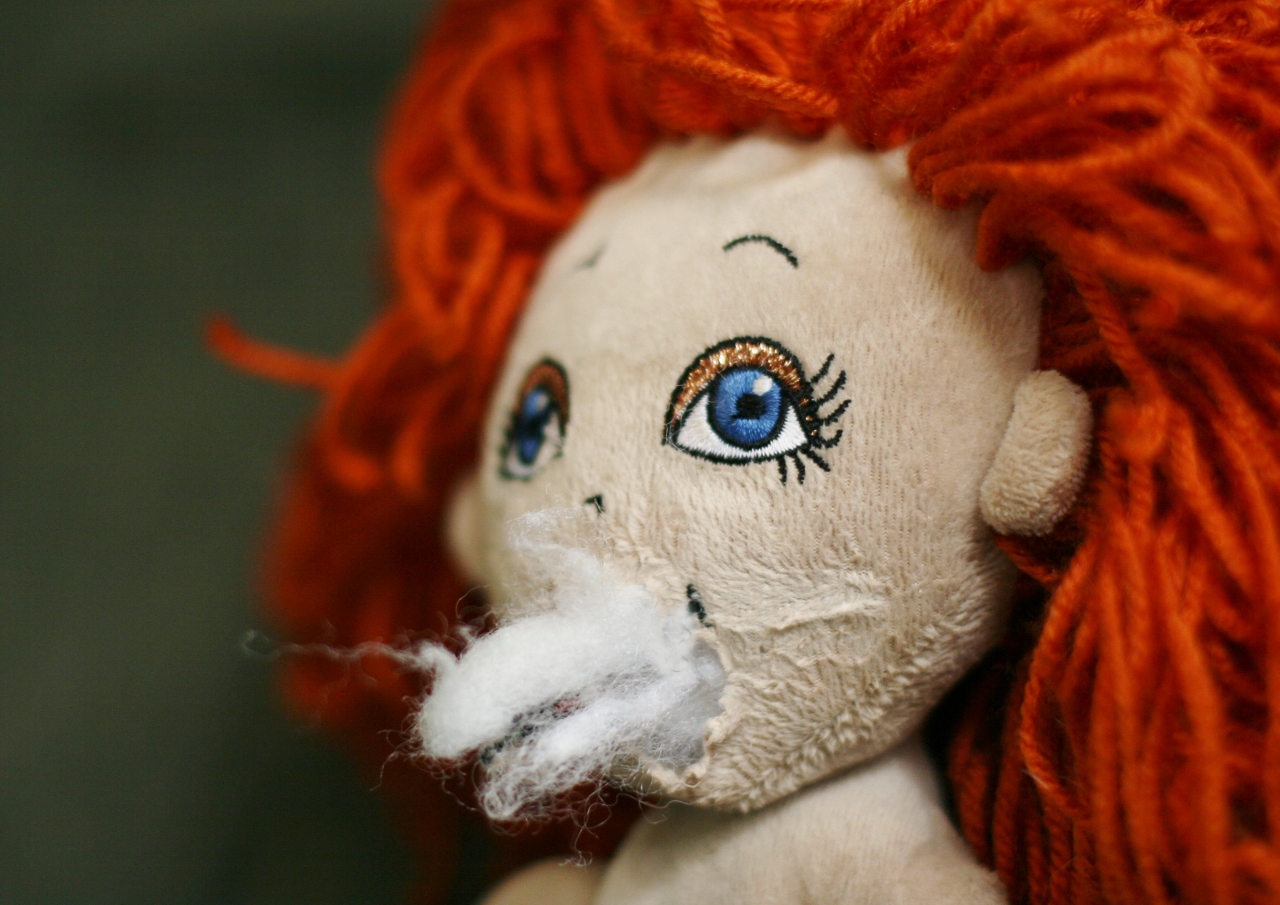
By Beth Kephart
There’s a doily fringe of Japanese maple leaves just beyond the window, three tired pear trees, and after that, close as that: him, with his yellow hearing defenders clapped tight across his ears, and his large-capacity fuel tank steady on his back, and the telescopic tube caught in the grip of his very pale hand. His tee is florescent orange. His shorts are khaki. His shoes are made for leaf blowing.
Sometimes, in a breeze, he’ll stand—watching the leaves loosen from the trees and falling. He blows before they touch the ground. He blows. He blows. He blows.
Sometimes he’ll blow all morning, take a sandwich break, then blow again into the afternoon, a steady rev, a thought-traumatizing roar, a vehemence of machinery lodged high on the sound pollution chart, and I’ve checked the township rules: it’s legal.
Sometimes he’ll hire a guy to blow with him, and after they’re done, he’ll get his Shop Vac out and roar-suck the lamina, the petiole, the blade of whatever leaf defied him. You do not defy him, you do not lay your leaf self down on his red-brick path, which is feet away from where I stand, in my quiet room.
It’s hard work. He does it. There is a kind of dedication to a certain kind of art, and I wonder how this makes him feel, what caliber of satisfaction it yields, why I, who write quiet stories, who sustain quiet friendships, who teach quiet truths quietly, who believe in the power of quiet conversation, cannot right the story here. Cannot peaceably take the few steps to my side of the divide and wait for him to finish. To just ask: Please.
I form sentences I never speak.
I write letters I never tuck into his box.
I hold back, remembering our history. Past infringements—a branch from his tree on the roof of our house, the incessant blinking bleeping of an exterior light—were not finally cured by the words I chose. The issues were resolved, in time. But our neighborliness contracted, ushered a silence between us in.
There are all kinds of noises on my street. The screamer girls. The screamer boy. The red puppy with the four-syllable yap. The chopping chomping spinning blades that power tree life down.
Though there are times at night when bird song floats in. Fox shuffle. Deer munch on leaves. Times when I still feel safe in the house where I’ve now spent most of my long living.
•••
Safe from me.
•••
The first time I went animal I weighed eighty-five pounds and my face was swollen to twice its normal size. You’ll have to believe me; there are no photographs. It had been six weeks since surgeons had wired my mouth shut after installing steel-reinforcements among disintegrating jaw bones. Six weeks since chicken broth through a straw had become my only diet. Six weeks since I’d been writing my end of any truncated conversation down. The clients I had in the business I’d built couldn’t understand the garble of me on the phone; most left my consultancy for others. The friends I had didn’t know what to do, save for Nazie, who arrived one day with boxes of Florentine paper and sat, unafraid and near, while I took it in—the marble swirls, the fluid textures, the varieties of cream. There was December rain on the day she came. I lived on Gaskill Street with my husband. The rain had turned the air beyond the window dark. The light inside was amber.
Write it down, Nazie said, handing me a pen, spreading out the paper. Write whatever you’re feeling.
And we sat, and like that we talked, and I wasn’t animal.
•••
I met the animal in me on New Year’s Eve. My parents and brother had come to town. A spectacle of fireworks above the Delaware River was planned, and we were to walk there in the bright cold—my parents, my brother, my husband, and me. The narrow house where we lived had come with its own attenuated parking spot—a bricked-in place that was, in summer, the site of a potted garden—and that is where my father parked. I was in my winter coat and my winter shoes and if a wind came in my father and husband would catch me, I knew, before I lifted off, Dorothy-like, and headed for the moon.
My twisted kite tail of a body.
My plump pumpkin-shaped face.
My monster self.
I’d avoided photographs. I’d avoided mirrors.
It was New Year’s Eve, and I was going out.
•••
The louder the leaf blower blows, the more deeply he sinks into his leaf-blowing trance. Though the path he clears is no more than twenty feet long, he walks it into miles when he blows and blows and blows.
Back and forth, and back and forth. On the other side of the window in my quiet room. On the other side of the quiet me.
•••
Soon as my father pulled into our winter parking space, soon as I had stepped outside and we were nearly off—me with my monster face, me with my protectorates—a man drove up in a fancy car and parked precisely where one would park one’s obnoxious car were one trying to park in my father.
There were No Parking signs for anyone to see. There were little hatch marks on the asphalt. There was my father’s car, suddenly imprisoned. That man didn’t care. It was his New Year’s Eve, and the fireworks along the Delaware would be no less than prophetic. Maybe he’d been side-street cruising and this was the best spot all around, or maybe he was just one gigantic asshole, but he was leaving his car where no car should be, and my instinct was to tell him.
You can’t park there, I opened my mouth to say, but what came out was mwah mwah garble, a desperate mash of bleating sounds chewed gibberish by surgical metal and snuffed into nothing by that plastic thing they’d wired between my teeth, to keep my new steel joints from moving.
Mwah mwah mwah, I said.
Mwah mwah mwah. Now I was screaming.
I was aware of my husband’s sudden horror.
I was aware of my father’s stepping forward.
I was aware that the driver of the fancy car had turned to look at me, and that he was laughing. I was hysterical to him—my monster face, my strangulated sounds. I was hysterical, and now he was walking.
The animal in me went after him.
I was not who I thought I’d ever be.
•••
The room where I work is a quiet room, for I am a quiet self: I am contained, I am restrained, I am equilbria. I read, I write, I fold paper there. I thread needles and I sew. In my quiet room I do my quiet work, listening through the windows I raise for tree breeze and squirrel leap and birds inside in their toots. Bee buzz, feather twist, cricket chirp, cicada, the sounds of my husband’s shoes on grass, the sounds of my husband, faintly whistling, the sounds of the world going on, the many sounds of silence, peaceable and whole and unendangered.
And undangerous.
•••
I went after that man with the bones in my hands, with my body, thin and twisted, with the pulp and bruise of my monster self. I went after him, hurling words snuffed to hard soft sounds by wires, bolts, and plastic. I went after him, struggling for air through swollen nostrils, struggling for balance, there in the dark, where my parents and brother had come to visit because there was to be a show, where my husband watched in horror, where the sign said No Parking, where he was laughing.
I went after him, feral.
Instinct obliterating thought. Wrath as self-erasure or self-pronouncement but I didn’t know which, I could not think, I was molten magma, ugly spew, a misfire of my senses.
I felt my father hook one arm.
I felt my husband hook another.
I heard my husband saying, What the hell?
Hit the man, he’ll hit you back.
Hit the man and cede to the worst in you, the secret, hidden animal urge that you do not recognize, that cannot be you, somehow is.
•••
When the man with the sun-colored hearing defenders revs, there are no sounds of silence. There is instead the hot holler of his blower, the power blast of his decibels, the endless useless joy he takes from walking his brick miles, chasing the leaves that have not fallen yet, chasing the detritus of nature. When the man with the sun-colored hearing defenders revs, there is no quiet self in a quiet world.
•••
I scream into the roar, but he can’t hear me. I say shut up shut up shut up which is mwah mwah mwah which is no sound at all against the blower. I slam the windows shut, but my quiet world is rattled. My quiet world, my quiet stuff are now the anger channel.
•••
I like to think that I would have stopped myself from throwing myself against the guffawing fancy driver. I like to think that I am not the woman who stands at her window raging. I like to think that my quiet self is the self who tells this story.
•••
On the sill of the window I have flung open wide again, I place a pair of putty speakers and an ancient, dirty iPod. I wait, I wait. He blows, he blows, menacing the leaves. My pulse is loud. My temperature is rising. At last he powers off. The roaring stops. He un-defends his ears. I touch the right parts of my ancient machines and dial Abba in—a full-on volume 10, the loudest noise I’ve ever propagated. “Dancing Queen” slams the air with music—so hard, so loud, so savage. “Dancing Queen” outlouds the yapper, outlouds the man on the path.
If only now he’d look up at me, if only now he’d see me. If only now I were not claws and fur, the animal I hope desperately I will never again be.
•••
BETH KEPHART is a writer, teacher, and book maker. Her new books are Wife | Daughter | Self: A Memoir in Essays and We Are the Words: The Master Memoir Class. More at bethkephartbooks.com.

 Follow
Follow
